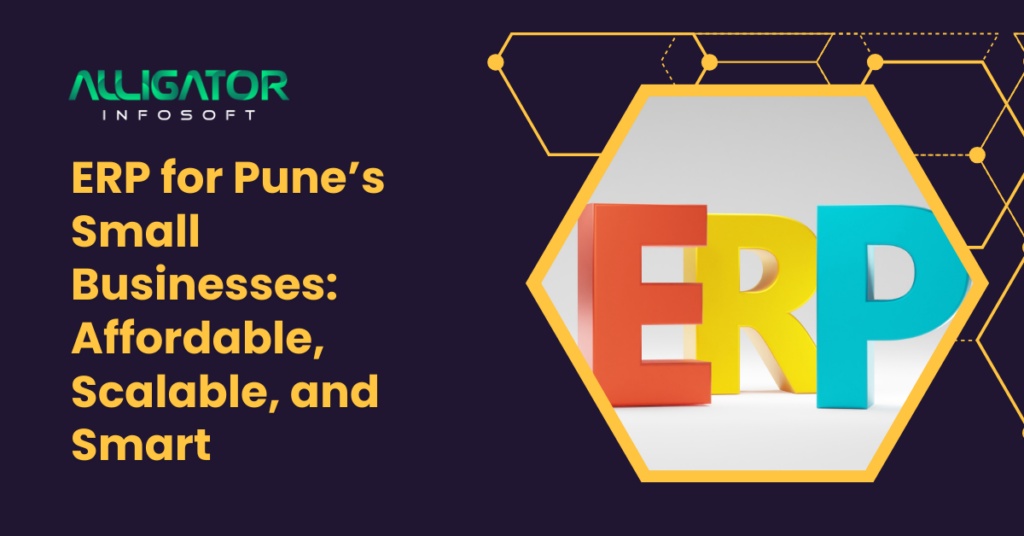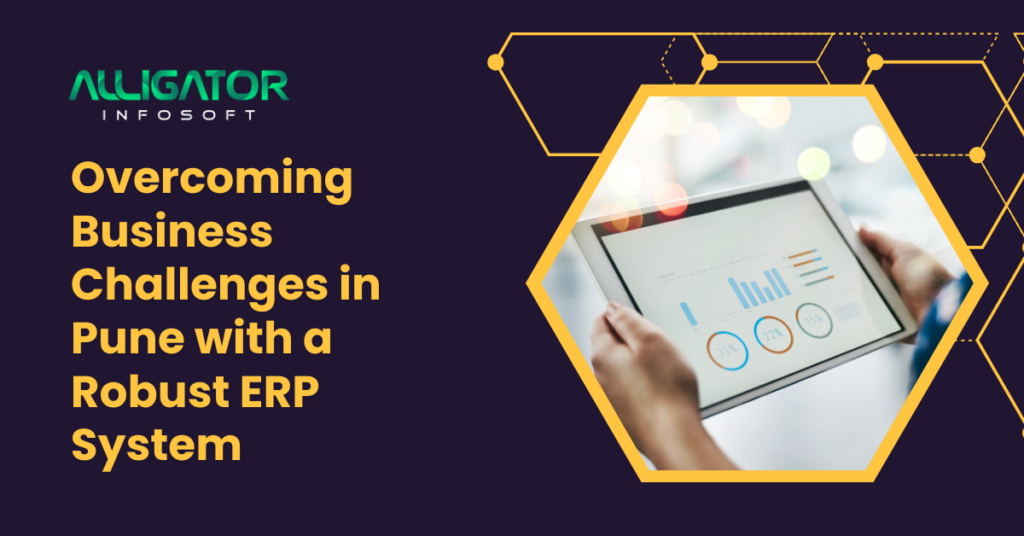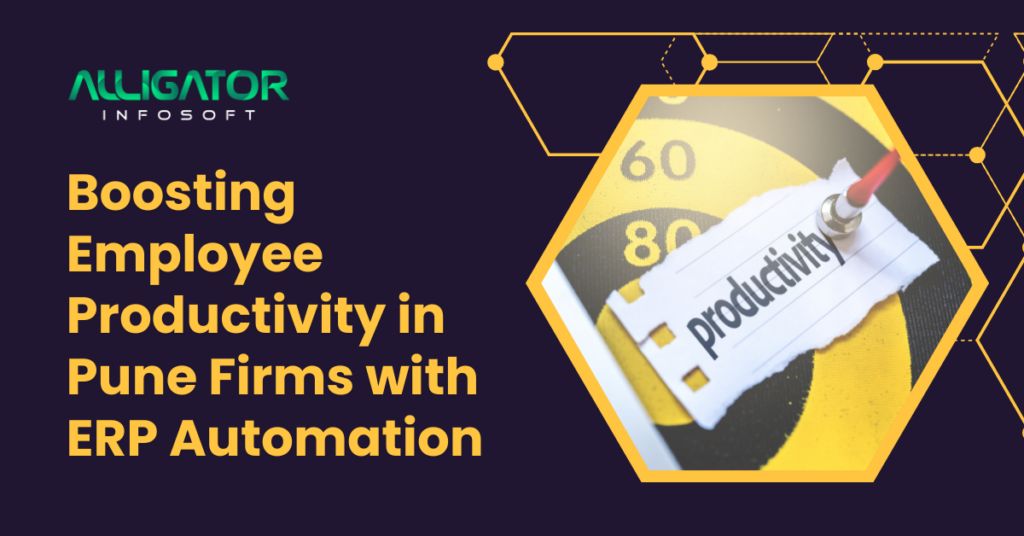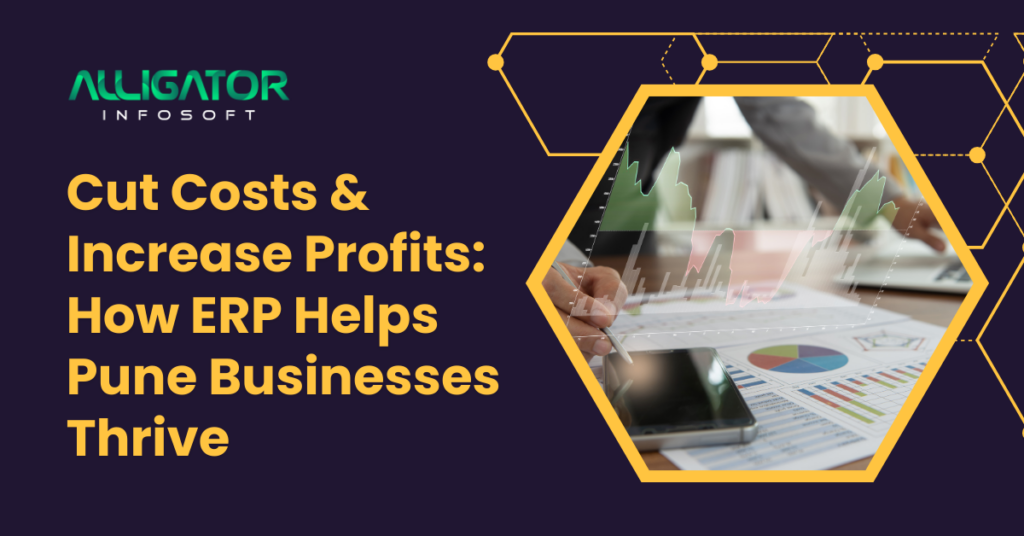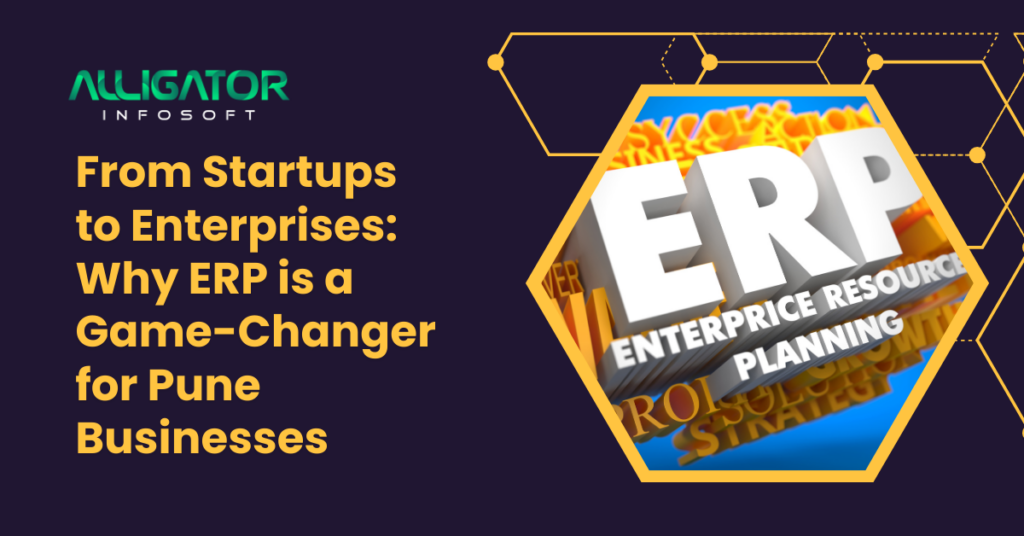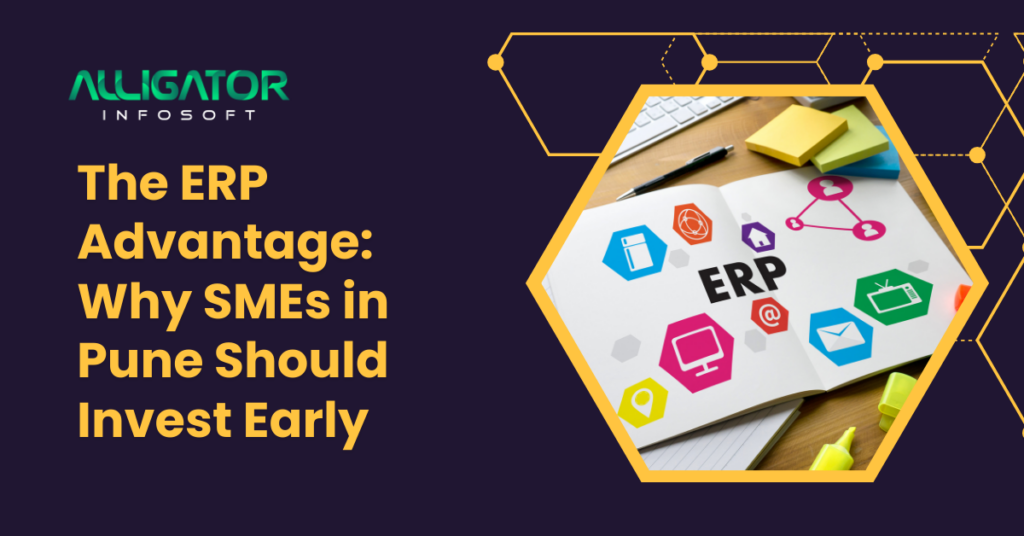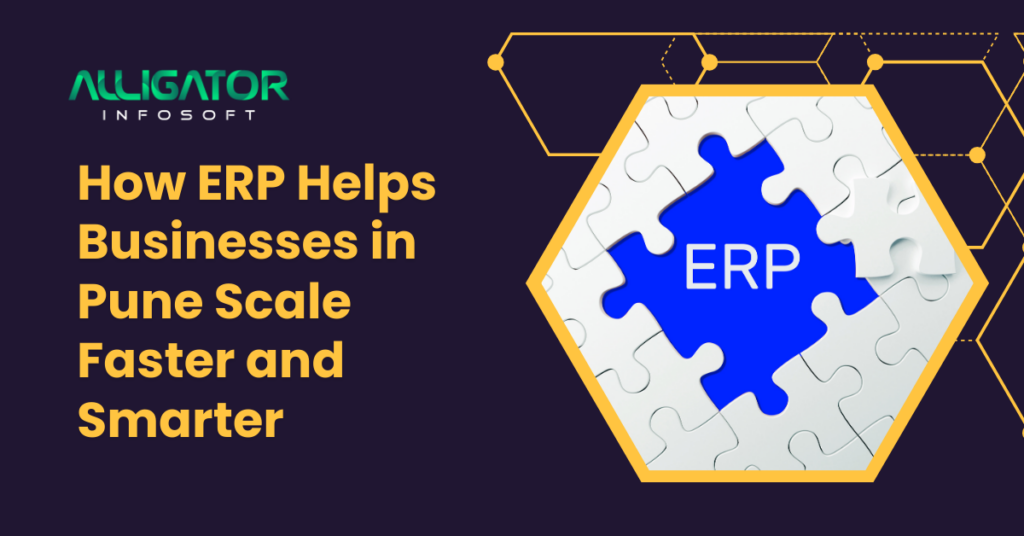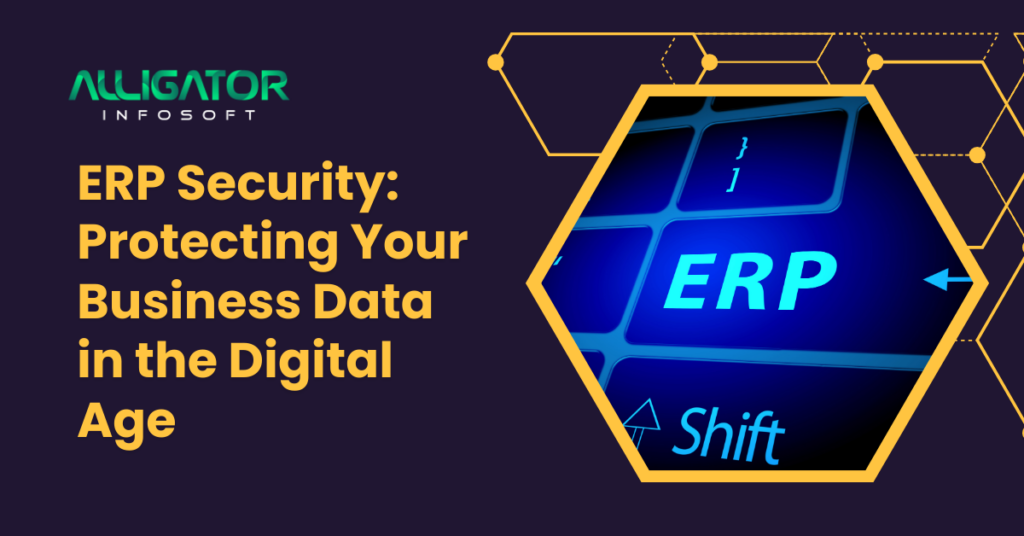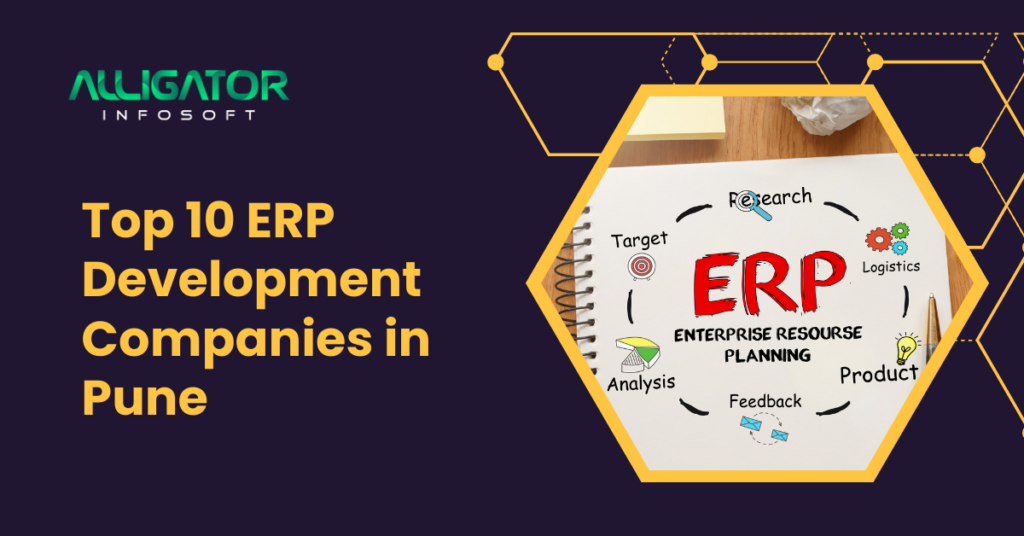ERP for Pune’s Small Businesses: Affordable, Scalable, and Smart
Pune has become a vibrant hub for small businesses. From manufacturing and logistics to food production, retail, and consulting, entrepreneurs in Pune are actively scaling their operations. But with growth comes complexity—especially when it comes to managing accounts, inventory, orders, employees, and customer relationships. That’s where ERP systems come in. For many business owners in Pune, ERP is no longer an expensive corporate luxury. It’s an essential step toward more efficient, streamlined, and smarter business operations. Let’s explore how ERP systems are transforming small businesses in Pune, and why now is the right time to adopt one. What is ERP and Why Does It Matter for Pune Businesses? ERP stands for Enterprise Resource Planning. At its core, it’s software that connects different functions of your business—sales, inventory, HR, finance, customer management, and more—into a single platform. This means less data duplication, fewer manual processes, and real-time insights into business performance. For business owners in Pune, especially those juggling multiple responsibilities, ERP offers a much-needed structure. It’s like turning on a light in a cluttered room. Suddenly, everything’s visible, organized, and manageable. Why Small Businesses in Pune Need ERP Now More Than Ever Running a small business in Pune isn’t what it used to be. Customer expectations are higher, operations are more complex, and digital competition is fierce. With increased GST compliance requirements and the need for efficiency across departments, business owners can’t afford to rely on spreadsheets or disconnected software tools. ERP systems offer a way to stay competitive without getting overwhelmed. Whether you own a warehouse in Bhosari or a store in Kothrud, ERP can help you: Track every rupee and transaction with accuracy Keep inventory aligned with real-time demand Automate payroll, billing, and purchase orders Improve customer relationships with integrated CRM tools Key Benefits of ERP for Pune’s Small Business Owners Here’s what Pune’s small businesses gain by implementing a tailored ERP solution: Centralized control over operations without needing multiple platforms Improved inventory visibility, reducing stock-outs or overstocking Simplified accounting and GST compliance Transparent tracking of employee performance and payroll Faster billing, better cash flow, and fewer human errors Greater efficiency in managing vendors, customers, and internal teams It’s not just about doing things faster—it’s about doing them better, with data to back every decision. Why Scalability Is Essential in Pune’s Business Environment Small businesses in Pune are scaling fast, especially in sectors like food processing, engineering, and digital services. This rapid expansion often brings operational challenges. An ERP system allows your business to scale smoothly. You don’t have to invest in the full suite right away. Start with basic modules—such as invoicing and accounting—and add others like HR or inventory as your team grows. This flexibility ensures you’re always in control, without overwhelming your staff or finances. Features Pune Businesses Should Look for in an ERP When evaluating ERP systems, Pune business owners should look for: GST and local tax compliance tools User-friendly dashboards for quick decision-making Multi-user functionality for departments like finance, HR, and sales Real-time inventory management Mobile access for field teams or remote updates Cloud hosting or on-premise options based on internet reliability Support and training from a local ERP provider also make a big difference. Look for vendors or ERP consultants based in Pune who understand your industry and can offer ongoing help. ERP Use Cases Across Business Sectors in Pune ERP systems can benefit a wide range of industries in Pune. Here’s how different business types are using ERP to run more efficiently: Manufacturing Units ERP helps manufacturers streamline production, track materials, and handle quality control. Real-time visibility into raw material availability and order scheduling reduces bottlenecks and delays. Retail Stores Whether it’s a single shop or a chain of outlets across Pune, ERP helps retailers manage stock, process invoices, and track customer loyalty. It also simplifies returns and restocking. Service Providers Consultants, design studios, marketing agencies, and IT firms in Pune use ERP to manage client projects, automate billing, and monitor employee productivity—all from one system. E-commerce Businesses With ERP, e-commerce sellers in Pune can sync inventory, manage online orders, track delivery timelines, and handle customer returns with ease. Finding the Right ERP Partner in Pune Successful ERP implementation depends as much on the provider as the platform. Choosing a local ERP partner means better communication, faster training, and support tailored to your business challenges. When selecting a vendor in Pune: Ask for demos to see how the system handles your business processes Check if they’ve worked with businesses like yours Clarify implementation timelines and post-deployment support Ensure they offer GST-compliant features and documentation assistance ERP is a long-term investment, and the right partner will ensure it delivers value from day one. Overcoming ERP Adoption Challenges While ERP adoption can feel overwhelming at first, most challenges are temporary and can be resolved with good planning. Common issues include: Resistance from staff who are used to older systems Concerns about ERP data migration and accuracy Fears about cost and return on investment You can overcome these with a phased rollout approach, strong training sessions, and partnering with a vendor who offers support every step of the way. Many ERP platforms also offer low-cost cloud-based plans that reduce upfront expenses. Digital Adoption Support for Pune’s MSMEs Small businesses in Pune can also benefit from government-led programs encouraging digital transformation. These programs offer financial incentives, digital literacy support, and implementation assistance for technologies like ERP. Business owners can consult Pune’s MSME Development Institutes, Startup Hubs, and industry associations for more information on available subsidies or ERP onboarding workshops. Popular ERP Platforms for Pune-Based Businesses Several ERP platforms have emerged as favorites among Pune’s entrepreneurs. Each has its strengths depending on business type and scale. Odoo Odoo is a modular, open-source ERP system known for its flexibility. It’s ideal for Pune businesses that want to start small and add features gradually. Whether it’s accounting, sales, inventory, or HR, you can customize Odoo to your needs. ERPNext Designed and developed in India, ERPNext is widely


